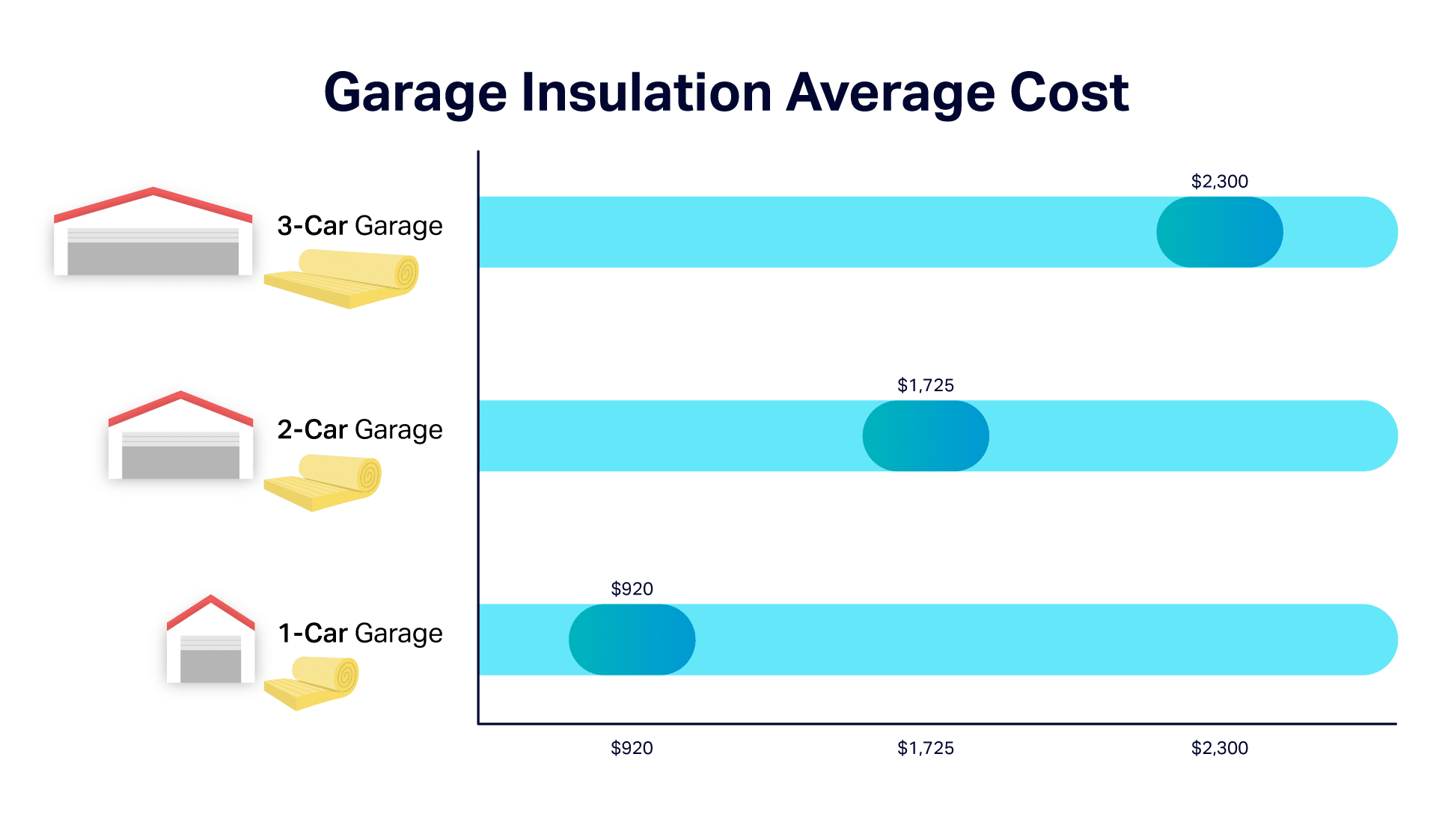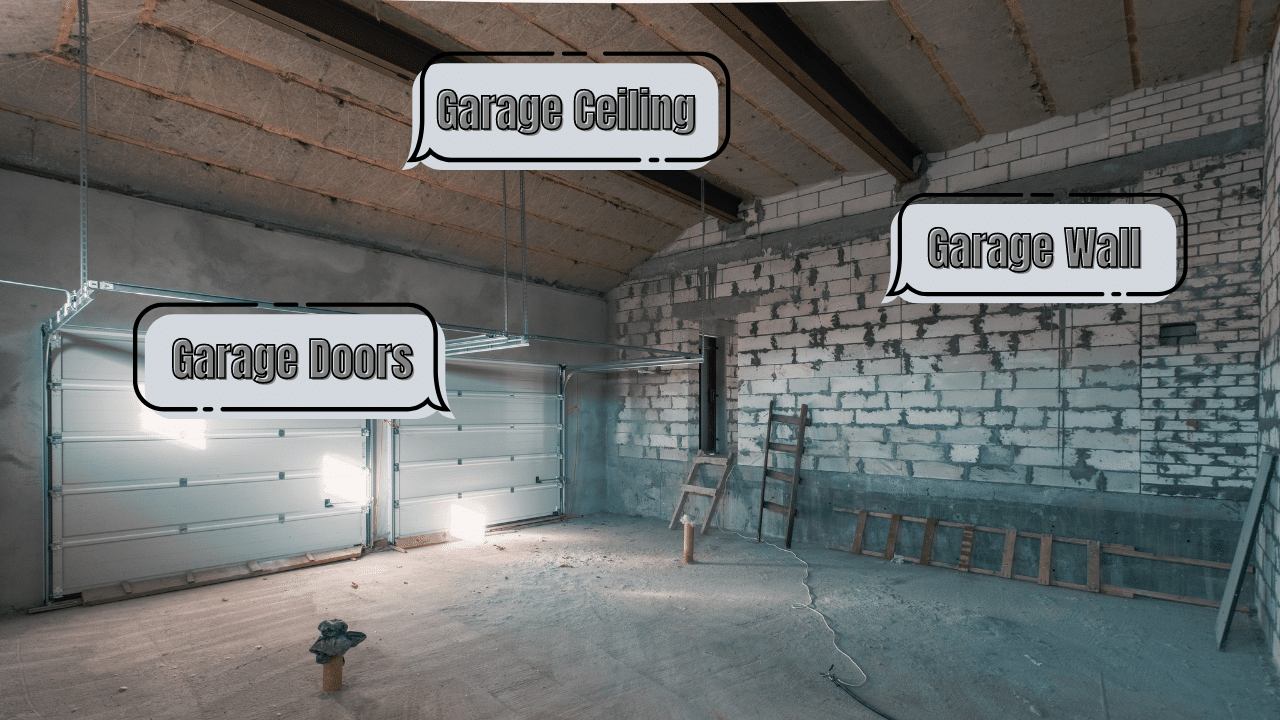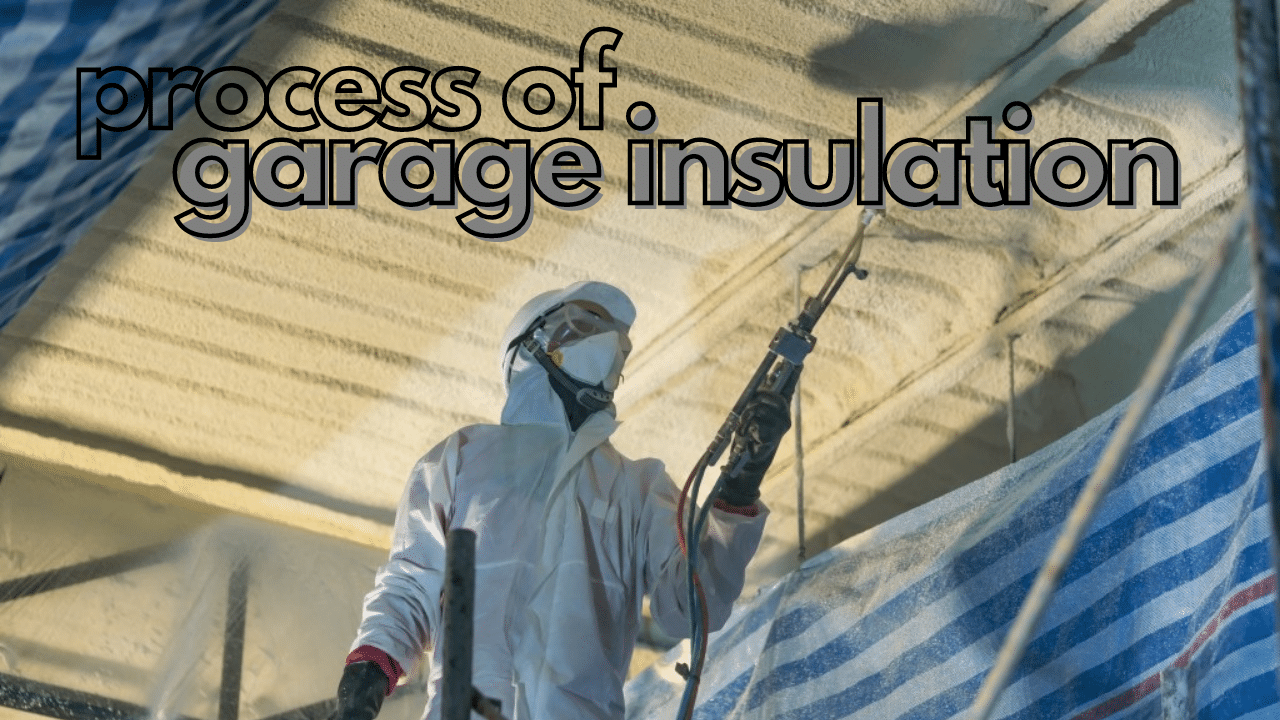There’s no reason for you to suffer uncomfortable, scorching temperatures and soaring power bills because of your garage. In fact, thousands of homeowners in the United States consider garage insulation an excellent investment each year.
Insulated garage cost starts from $1,725 to $9,200, depending on the selected material and the overall size. Most attached garages will only need to insulate the external walls. The costs of garage door insulation (for a 9-foot-tall garage door) with batts or rigid foam ranges from $230 to $345. (Related: Garage Door Replacement Cost & Consumer Guide)

If you want to convert the room above your detached garage as a home office, kids' play place, or storage space, garage insulation is a must. It will help you transform the cold or stuffy room above the garage into a living space you’d love!
3 Parts of Garage Insulation

Familiarizing the components of your garage can help you ensure the insulation project won’t end up costing you more money in the long run.
With that said, let’s take a look at the three main parts of garage insulation:
Garage Ceilings
Your insulation contractor will most likely look into your garage ceiling first. It is because of its proximity to the above space. As such, air sealing and insulating the garage ceiling avoids cold floors or drafts– which may only make your indoor living space uncomfortable. Doing so also protects your home from dangerous auto emissions, which may eventually cause harm to your family.
Garage Walls
If your garage shares a wall with another room, this will require air sealing, insulation, and fire-rated drywall on your end. It will keep hot or cold temperatures outside your dwelling, even the space located above the garage. Not to mention, it also helps ensure the safety of your entire home.
Garage Doors
For your reference, garage doors are often the source of heat inside the space– so it won't be easy to cool the garage without insulation. Any door in the home leading into the garage must be considered as an exterior door. With that in mind, it should be properly fit, insulated, and weather-stripped.
Most garages will have one designated door for a car. You can decide on installing a newly insulated door or retrofitting a current one with suitable insulation material. Doing so helps maintain both the garage and the living space above it at a comfortable temperature. Additionally, insulated doors prove to be stronger and dent-resistant.
Factors Affecting Garage Insulation Costs
Here are some defining factors that may hike the garage insulation costs further.
Type of Insulation
Generally, there are four types of insulation for your garage ceiling, doors, and walls. Let’s discuss them in detail below.
To help you determine the best garage insulation type for your needs, refer to the table below, discussing the pros and cons of popular insulation choices.
Garage Insulation Type | Benefits | Drawbacks |
|---|---|---|
Reflective System | Effectively reflects the heat away from the house, reducing cooling costs | Only commonly used in warmer climates |
Batt Insulation | Cost-efficient and easy to install | Lower R-value, and may contain eye and lung irritants |
Blown-in Insulation | Eco-friendly and versatile insulation material | Susceptible to mold and rot if not sealed properly |
Foam Board Insulation | Easy to install, doesn’t easily crack or split | Takes a while in wrapping around outlets, wires, and the like |
Overall Size of the Space
Another influential variable in your garage insulation costs boils down to the total size of the space. Here’s a brief overview of the garage insulation costs depending on the size:
Garage Size | Average Expenses |
|---|---|
1-Car Garage | $920 |
2-Car Garage | $1,725 |
3-Car Garage | $2,300 |
Converting your garage or the area above it into an extra living space can boost the value of your property accordingly.
Some popular garage conversion ideas include:
Labor Costs
The labor costs of a garage insulation installation begin at $0.80 to $1 per square foot. The total expenses may reach $1,207 to $1,610.
If you want to make the most bang out of your buck, it’s best to get at least three estimates from different local contractors. Scheduling your project in the late fall or earlier winter season may also offer you great discounts.
R-Values and U-Factors
Insulating or re-insulating your garage may require you to abide by requirements in your area, such as particular R-values and U-factors ratings.
If your property is located in moderate climates, R-13 insulation is already suitable. Meanwhile, R-19 insulation can be excellent for areas dealing with harsher climates.
Energy Audit
Some properties may need an initial energy audit, which determines the need for residential air sealing. It uses various barriers to trap air– a common reading of cooled or heated air to leak outdoors or inside the area. The sealing costs begin from $345 to $690, depending on the amount of work required.
An energy audit will also let you know if your garage door is becoming a severe issue. If you want to invest in garage insulation, it's best to determine if you need newly insulated garage doors.

Project Process of Garage Insulation
Here’s a step-by-step project process of a typical garage insulation installation:
- 1Your contractor will need to measure the size of your garage door to determine the right amount of insulation you need accurately. It includes measuring each garage door panel's dimensions.
- 2The insulation material will be cut according to size with the proper materials to cover your project. Afterward, they can start adhering the cuts onto the garage ceiling, door, or walls.
- 3Now it's time to wait. It is crucial to give your insulation ample time to completely dry, which generally takes a few hours. Note that the amount of time will depend on your contractor's chosen adhesive type. In some cases, you may need to wait a full day (24 hours) for the adhesive to bond completely.
- 4An optional step is to apply a foam sealant. Doing so helps fill in the small gaps found on the garage door's foam panels or the walls inside the garage.
Why Should I Insulate my Garage?
Insulating a garage is an excellent investment for homeowners looking to use their garage (or the space above it) as a workspace. Using the garage as a woodworking shop, dance studio, exercise area, or machine shop is also standard across the country.
Choosing to insulate a garage wall close to the home will also help you save on additional electricity costs. The walls are the primary reason for the heat in the garage and the entire house. Dealing with hot, uncomfortable garages will cost more in electricity– even if your garage entrance stays closed most of the time.
Another benefit involves soundproofing the area. It means you can either keep the sounds in or out, depending on your preference. This can be a life-saver if you live on a busy street, daily dealing with loud traffic noises.
Homeowners planning to convert the garage as a workshop or an area to practice the drums may also benefit as it prevents the noise from becoming a nuisance to your neighbors.
Garage Insulation Pricing and Installation Cost Checklist
We asked the experts to help ensure every cent spent on your garage insulation project will be worth it. Here are some pro tips to keep in mind:
Garage Insulation: Frequently Asked Questions (FAQs)
Is insulating a garage worth it?
The simple answer is yes. It helps you maximize your energy efficiency, saving money from your monthly energy bills. In addition to its benefits, it also helps eliminate cold spots and balances your home's temperature.
How much does garage insulation save?
Garage insulation can help you save up to 40% on energy bills, and re-insulating it may increase your energy efficiency at home.
What is insulation R-value?
The one that measures the efficiency to stop heat transfer is the R-value of a type of insulation. Typically, a higher R-value means a better insulator. Here are the benefits that garage insulation can offer:
What is the best insulation for a detached garage?
The best insulation for most cases is fiberglass batts or rolls. It is considered the most common and classic form of detached garage insulation because of various reasons. They are easy to install and cost-effective while having a relatively good R-value.
Is sealing your garage important after installing the insulation material?
It is essential to take a quick inspection of the area once the garage installation is installed. Make sure to seal everything off, such as spaces with chemicals, including your car's exhaust.
Final Thoughts
At the end of the day, garage insulation undoubtedly leaves a positive impact on your home’s comfort and energy efficiency as you know it.
Installing garage insulation will also help you cut costs on cooling and heating bills. Not to mention, you won’t have to break the bank on garage insulation installation expenses– as it has a relatively fair price.
We understand how tempting it is to attempt a DIY insulation project. Still, it’s best to look for a licensed and insured garage insulation contractor to ensure the installation job is done correctly and safely.
